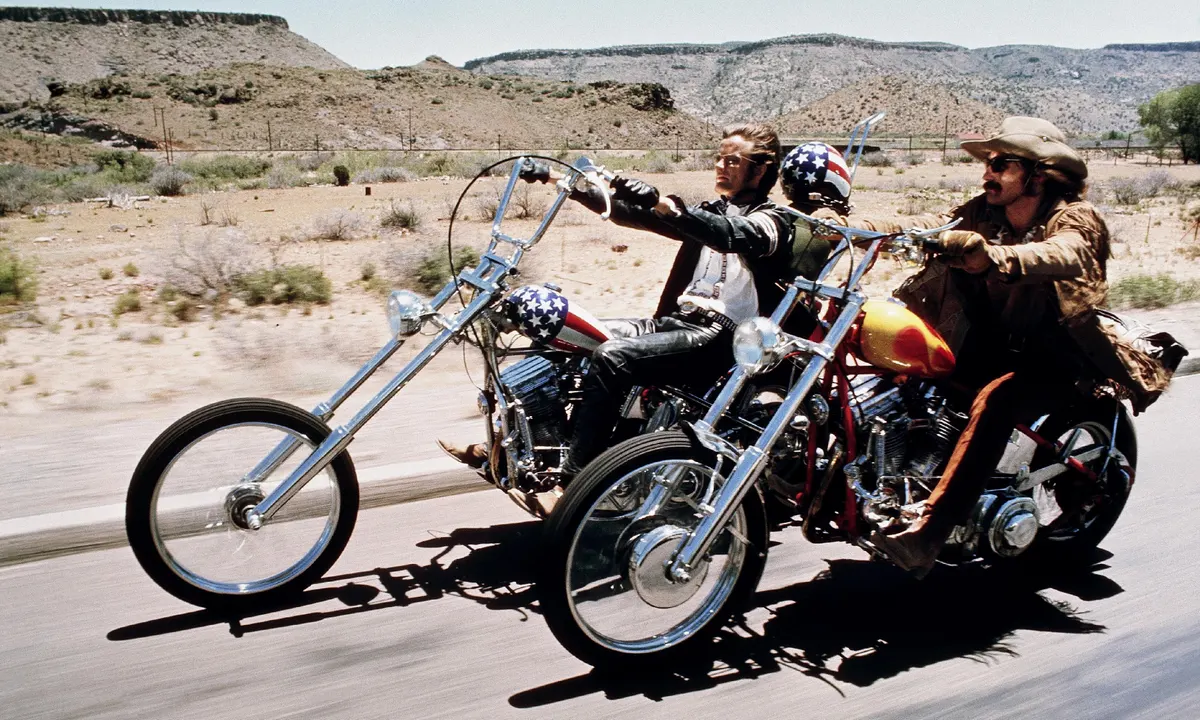‘Steppenwolf Day’ in Oshawa a hit with Born to be Wild writer and local boy Mars Bonfire
Published September 25, 2023 at 1:53 pm

Steppenwolf guitarist and songwriter Mars Bonfire (aka Dennis Edmonton) is promising to attend next year’s Convergence Music & Arts Festival after ‘Steppenwolf Day’ was declared Saturday in Oshawa.
Bonfire, still an avid hiker at 80, participated in a ZOOM meeting with filmmaker Paul Koidis following the screening at the Biltmore Theatre of a documentary on 1960s Yorkville called ‘Essentials,’ which looked at the impact the former hippie haven (now exclusive enclave for the well-heeled) had on the music industry.
Bonfire was born and raised in Oshawa (on Oshawa Boulevard and later Stevenson Road) and wrote the rock ‘n roll road anthem ‘Born to Be Wild,’ which became the seminal band’s biggest hit, while hiking in the desert behind the Hollywood Hills.

Mars Bonfire at the SOCAN music awards in 2015
A member of Steppenwolf precursor Jack and the Sparrows, Bonfire re-joined the band (his brother Jerry was the drummer) in time for their biggest success and brought Born to be Wild with him.
The song (featured in the classic 1969 flick ‘Easy Rider’) is credited by some for coining the phrase ‘heavy metal’ – which later became a rock genre – with the lyrics, “I like smoke and lightening, heavy metal thunder,” but other lyrics in the song, such as “get your motor running, head out on the highway, looking for adventure, for whatever comes our way” became the message for an entire generation to get out of their comfort zone and see the world.
“I didn’t know it would even be recorded, let alone be a big success,” he said. “I think it captures the essence of that transition between youth and adulthood, of leaving your parents and getting out on your own.”

Steppenwolf
Bonfire remembers the Yorkville of the 1960s as well – as did Steppenwolf front man Jon Kay, who was featured in the short film – and said the stars of the era who were interviewed for the documentary were an example of the talent on display in those coffee houses and music venues.
“There’s a saying in the music business that Canada ‘punches above its weight’ and Yorkville was the focal point of all that,” said.
He also remembers Oshawa and peeling potatoes in the basement of the Jubilee Pavilion, which his father managed.
“My Dad used to say it’s ‘time to get behind the eight ball and get serious’ but while he was saying that I’d have one eye on the intoxicating sounds coming from the bandstand.”

Filmmaker Paul Koidis
He also remembers playing at Woodview Park and hiking to a country school (three grades taught in the same room!) when his family moved into what was then farmland in north-west Oshawa.
“That’s where I found my love of hiking and the great outdoors,” he said. “Oshawa was a great place to grow up in the 40s and 50s.”
The Yorkville documentary included interviews with many musicians, journalists and even former Ontario Premier Bob Rae, who spoke of hanging out in Yorkville as a student at the University of Toronto and at nearby Rochdale College, a “high-rise for hippies” that is now a senior’s building. “There probably more drugs now than there ever was then,” he joked.

TV personality Jeanne Beker
Fashion editor and TV personality Jeanne Beker, who launched the ground-breaking music magazine show ‘The New Music’ in 1979, remembered Yorkville as a “garden.”
“Just for a moment in time we believed anything was possible. At least we got to taste that magic.”
Her sentiment was shared by classical guitarist icon Liona Boyd. “It was such a beautiful place,” she said. “We knew there was a war going on, but we had such hope for world peace.”
Musician Sylvia Tyson remembered Yorkville having “more coffee houses than people to play in them,” as well as an eclectic variety of musicians drawn to the area, including Neil Young and Rick James (of ‘Super Freak’ fame) playing in the same band.

Bob Rae
“It was a beautiful oasis,” said singer/songwriter Dan Hill, while legendary rock producer Bob Ezrin remembered Yorkville being the centre of the musical revolution then sweeping the world.
“There was a revolution going on and Yorkville was where all that was happening.”
Kay remembers the peace and love inside these coffee houses, as well as what was going on outside.
“There really was an ‘us vs them’ mentality back then,” he said. “The place had a certain magic but nobody (in the media) thought it desirable to say what a wealth of talent was there in Yorkville.”
Koidis likened the Yorkville of the late 60s to Oshawa in the past ten years in his remarks to the enthusiastic audience after the screening.
“There’s a lot of the same magic going on.”
The documentary was part of the Sparks Series happening at the Biltmore Theatre Saturday, a lineup that also included a documentary called ‘Subversives,’ by musician and tour manager turned director and producer Simon Head. The film told the story of Canadian indie legends The Lowest of the Low, who “fiercely continued to fly the indie flag” after the major labels were signing all the best talent, to follow their own path to success.
The Sparks Series was closed with a panel discussion with David Ritter of Convergence headliner The Strumbellas, fellow performer Delon Om, author Dr. Isabel Pederson and Head discussing recent innovations in music and what they could mean for the industry going forward.

Yorkville in 1969. Image via York University Libraries, Clara Thomas Archives & Special Collections,
INdurham's Editorial Standards and Policies





